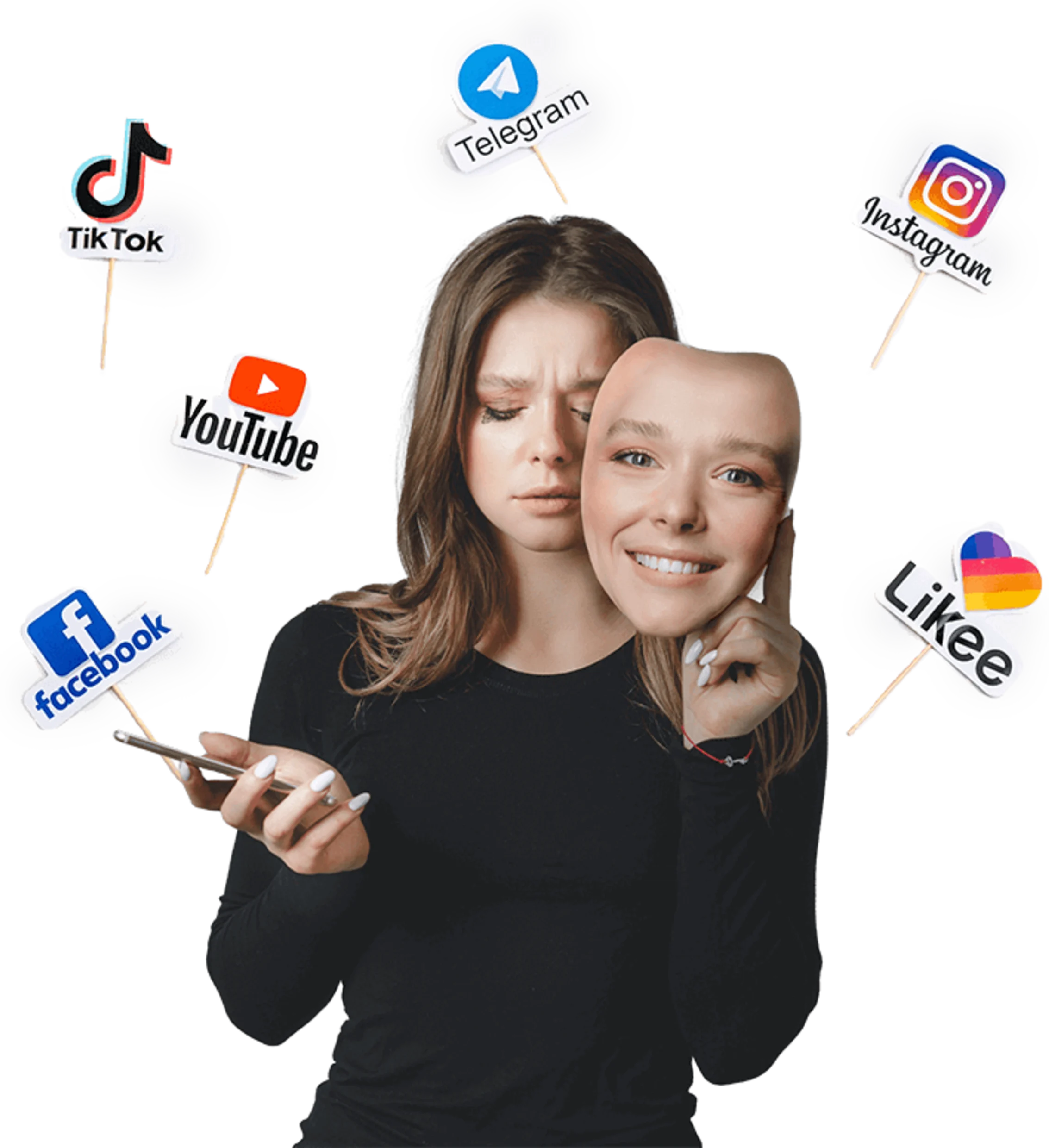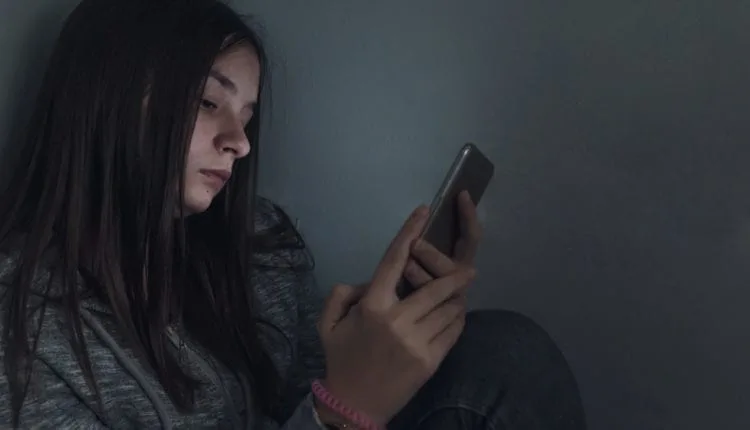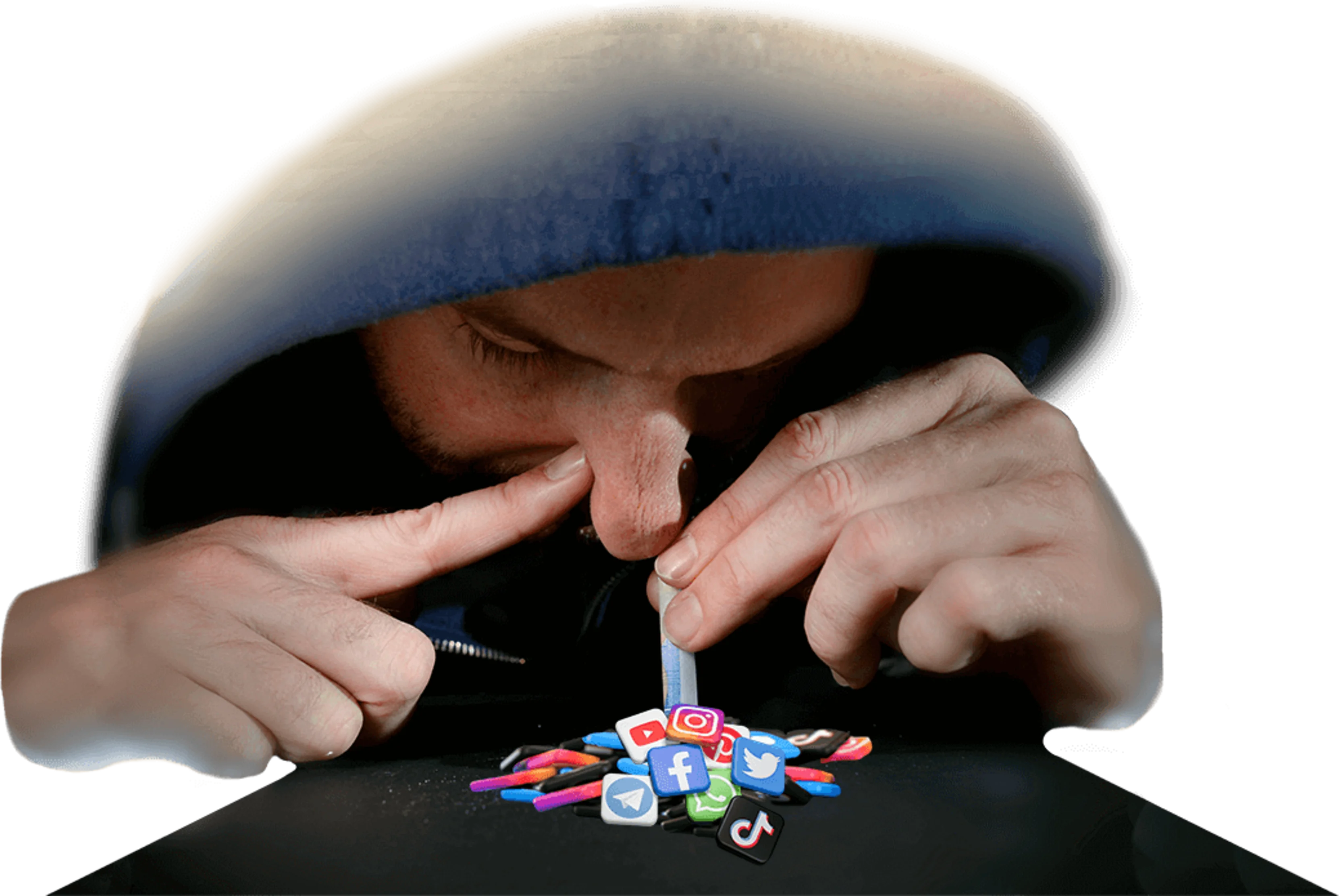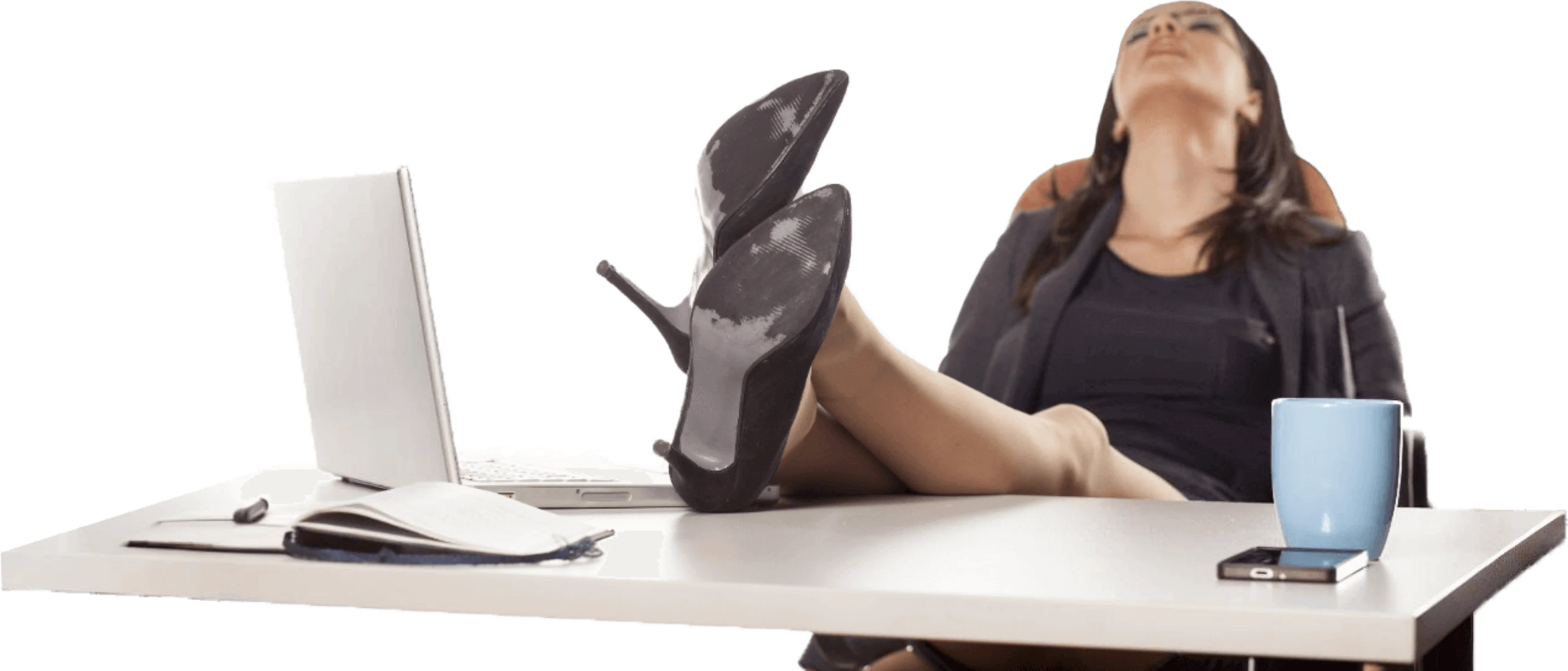Social Media: A tale of two selves and the poison of comparison culture
16 February 2023

16 February 2023

Your best friend has just been promoted to their dream job. You’re elated. They’re making strides, you say, ‘I'm so happy for you!’ but, in the background, a gnawing feeling starts to rear its ugly head and you think: why isn’t this happening for me?
Familiar with the scene of wandering through social media profiles of your friends, peers, colleagues, and their friends, their peers, and their colleagues, feeling like you can never match up to their perfect lives? Feeling that you can never be as smart, accomplished, physically fit, or popular, the list goes painfully on, as them?
Social comparison was once a beneficial evolutionary strategy that has become twisted through our heavy use and reliance upon social media. Just as we drain our phone batteries through the constant searching and scrolling, comparing ourselves to others can be a monumental drain on our self-esteem.
Social comparison can sometimes be beneficial. We can compare ourselves to people that we admire – an artist, an influencer, maybe a successful school friend – scouring their profiles to take note of what they’re doing so that we can add it to our list of goals. Assessing ourselves against people that are doing ‘better’ than us can help to motivate and inspire. It can be healthy, in small doses.

However, judging ourselves against someone else is unsustainable. We place unrealistic and unattainable expectations on ourselves and engage with harsh self-criticism.
We also compare ourselves to those who are worse off. Maybe a friend who dropped out of uni or a connection on LinkedIn who’s just been made redundant. It might provide a short escape from comparing yourself to a list of 30 billionaires under 30, but it can encourage us to adopt a skewed sense of superiority.
And, apart from being an unfair assessment of another’s life, does this constitute a healthy habit? Is placing ourselves on a pedestal, only because of how another lacks in comparison to us, a sustainable way to promote self-esteem and self-worth?
It’s said that social comparison is a ‘natural human behaviour,’ helping us to ‘learn from each other, and to keep us from falling too far behind our potential’. But when we take social comparison and breed it in a digital environment, it becomes toxic and harmful to our mental health and well-being.
As we become less connected through physical sight and touch - through real, tangible connection - our digital communities become a replacement to stave off those feelings of loneliness. We now seek most of our social connections through a screen; physically and figuratively.
Every single profile that you see - that you consume - on social media, is engineered. It’s as if each profile has had a team of diligent advertising agents work on it; every intricacy is finely tuned to reach a preferred target audience. We are constantly bombarded with an endless facade. Whole careers are built upon it.
Social media profiles are essentially an advertisement of the self. Comparing yourself to carefully curated face-tuned selfies or a TikTok that has been edited a thousand times runs a serious risk of cultivating a warped sense of identity; affirmed by the idea of not being enough.
Why is this bad for me, you say? Isn’t this just an adaptation that we have to learn to live with, given our lives are increasingly more digital and we seem to exist in two planes; the self in front of the mirror and the self on our Instagram page?
Maybe this is just a modification to modern life, but I think that it is imperative to understand that the way we now use social comparison - for the majority of the time - is in a toxic environment. One in which the person you are comparing yourself to is heavily crafted - no matter how real it seems.
In a world where ‘93% of youth aged 14-22 use social media, most daily’, most of our interactions in the pixelated age are performative. So, then, what does it do to our understanding of ourselves, when we spend 7 (probably more) hours a day performing an embellished, fabricated, perhaps even false version of ourselves for an audience to validate?
How do we harmonise between who we present on social media and who we are, truly? How harmful does it become when we start to appreciate, love, even deeply covet the version that is accessible only through a screen?
Like something straight out of Black Mirror, the future of social media seems to be heading into a frighteningly blurred dimension between reality and technology. With the advance of Meta, hailed ‘the future of digital connection’ by its creators - the same creators whose prototype for social media was a misogynistic game of hot or not - the majority of our lives could be destined to be lived on social media.
Companies like Meta expertly design their apps to be addictive, with our brains reacting to Instagram and TikTok in similar ways they would to a drug high or a gambling win. They feed off our insecurities like parasites. One of the allegations made against Facebook in 2021 by whistleblower Frances Haugen was that the algorithms ‘harm children’. The callous engineering of platforms is designed to keep us in toxic feedback loops to drive profit. As teenage girls viewed negative content concerning body image, the algorithms would feed more of this harmful content back; keeping them stuck in a tragic loop.
Social media has allowed us to have the world at our fingertips. We are constantly surrounded by a mass of individuals, yet most of the time, it only serves in making us feel lonelier than ever. In this toxic environment, social comparison can become a direct assault on our identity. Magnifying feelings of guilt, loneliness and self-deprecation, our self-esteem and mental well-being are eroding with each scroll and tap.
Written by
Lauren Chadwick22 year old English Lit graduate. Fervently interested in feminism, the arts, education, and advocacy. Constantly dreaming about moving to the mountains to read and stare at the moon.
Read next
Do you need a Digital Detox?

Jordan Mort
On the brink of burnout: why I mentally resigned from my job

Coralie Rossi
Where did all my friends go?

Maite Oxford
Weekly emails
Get more from Lauren
The Fledger was born out of a deep-seated belief in the power of young voices. Get relevant views on topics you care about direct to your inbox each week.
Write at The Fledger
Disagree with Lauren?
Have an article in mind? The Fledger is open to voices from all backgrounds. Get in touch and give your words flight.
Write the Contrast